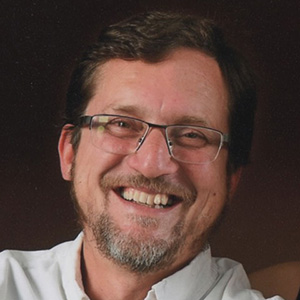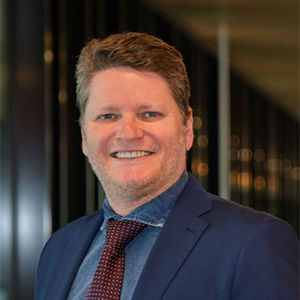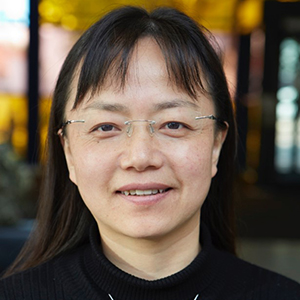Keynote Speakers

John Shalf
Lawrence Berkeley National Laboratory
John Shalf is the Department Head for Computer Science at Lawrence Berkeley National Laboratory. He also formerly served as the Deputy Director for Hardware Technology on the US Department of Energy (DOE)-led Exascale Computing Project (ECP) before he returned to his department head position at LBNL. He has co-authored over 100 peer-reviewed publications in parallel computing software and HPC technology, including the widely cited report “The Landscape of Parallel Computing Research: A View from Berkeley” (with David Patterson and others). He is also the 2024-2027 distinguished lecturer for the IEEE Electronics Packaging Society. Before joining Berkeley Laboratory, John worked at the National Center for Supercomputing Applications and the Max Planck Institute for Gravitation Physics/Albert Einstein Institute (AEI), where he co-created the Cactus Computational Toolkit.
Keynote Title: Investigating Chiplets for Scalable and Cost Effective HPC Beyond Exascale
Abstract: Chiplets have become a compelling approach to scaling and heterogeneous integration e.g. integrating workload-specific processors and massive bandwidth memory systems into computing systems; integrating die from multiple function-optimized process nodes into one product; integrating silicon from multiple businesses into one product. Chiplet-based products have been produced in high volume by multiple companies using proprietary chiplet ecosystems. Recently, the community has proposed several new standards (e.g., UCIe) to facilitate integration and interoperability of any compliant chiplet. Hyperscalers (e.g., Google, Amazon) are actively designing high volume products with chiplets through these open interfaces. Other communities are exploring the end-to-end workflow and tooling to assemble chiplet-based products. High performance computing can benefit from this trend. However, the performance, power, and thermal requirements unique to HPC, present many challenges to realizing a vision for affordable, modular HPC using this new approach.

Giancarlo Guizzardi
University of Twente, The Netherlands
Giancarlo Guizzardi is a Full Professor of Software Science and Evolution as well as Chair and Department Head of Semantics, Cybersecurity & Services (SCS) at the University of Twente, The Netherlands. He is also an Affiliated/Guest Professor at the Department of Computer and Systems Sciences (DSV) at Stockholm University, in Sweden. He has been active for nearly three decades in the areas of Formal and Applied Ontology, Conceptual Modelling, Business Informatics, and Information Systems Engineering, working with a multi-disciplinary approach in Computer Science that aggregates results from Philosophy, Cognitive Science, Logics and Linguistics. Over the years, he has delivered keynote speeches in several key international conferences in these fields. He is currently an associate editor of a number of journals including Applied Ontology and Data & Knowledge Engineering, a co-editor of the Lecture Notes in Business Information Processing series, and a member of several international journal editorial boards. He is also a member of the Advisory Board of the International Association for Ontology and its Applications (IAOA), and fellow of the most important scientific international community in Conceptual Modelling (https://conceptualmodeling.org/ER_Fellows.html).
Keynote Title: Carving Reality at its Digital Joints
Abstract: We live much of our lives immersed in the world of made-up structures that we call Social Reality. In other words, much of our lives are governed by socially constructed (and, hence, to a certain extent fictional) entities such as money, citizenships, employments, enrolments, marriages, presidential mandates, legal liabilities, stock options and derivative transactions, etc. With the massive advance of information technology, much of social reality is now purely grounded in a world of symbolic manipulation of digital representations. Moreover, much of this digital existence is scattered in several independent information silos that were created in different organizational cultures, through independent engineering processes, in different moments in space and time. Finally, we are more and more delegating decisions that help to create social reality to autonomous artificial systems. This scenario raises several critical questions, for example: how can we create a unified view of social reality by putting together pieces of information that now reside in independent information silos, each of which potentially carving out reality in potentially different ways? How can we build autonomous information systems that we understand and trust, i.e., systems that reflect our values, and that are semantically transparent and able to explain their decisions? In this talk, I intend to argue that modern information systems engineering cannot succeed without the support of the 2400 years-old discipline of Ontology in philosophy, a discipline devoted to the systematic investigation of what exists in a system of representations.

Liangxiu Han
Manchester Metropolitan University
Prof. Liangxiu Han has a PhD in Computer Science from Fudan University, Shanghai, P.R. China (2002). Prof. Han is currently a full Professor of Computer Science at the Department of Computing and Mathematics, Faculty of Science and Engineering, Manchester Metropolitan University. Prof. Han is Faculty Lead for AI, Digital and Cyber Physical Systems and Deputy Director of ManMet Crime and Well-Being Big Data Centre. Prof. Han’s research areas mainly lie in the development of novel big data analytics/Machine Learning/AI, and development of novel intelligent architectures that facilitates big data analytics (e.g., parallel and distributed computing, Cloud/Service-oriented computing/data intensive computing) as well as applications in different domains (e.g. Precision Agriculture, Health, Smart Cities, Cyber Security, Energy, etc.) As a Principal Investigator (PI) or Co-PI, Prof. Han has a proven track record of successfully leading multi-million-pound projects on both national and international scales (supported by diverse funding sources: UKRI, GCRF/Newton, EU, Industry, and Charity) and has extensive research and practical experiences in developing intelligent data driven AI solutions for various application domains (e.g. Health, Food, Smart Cities, Energy, Cyber Security) using various large datasets (e.g. images, numerical values, sensors, geo-spatial data, web pages/texts). Prof. Han has served as an associate editor/a guest editor for a number of reputable international journals and a chair (or Co-Chair) for organisation of a number of international conferences/workshops in the field. She has been invited to give a number of keynotes and talks on different occasions (including international conferences, national and international institutions/organisations). Prof. Han is a member of EPSRC Peer Review College, an independent expert of European Commission for proposal evaluation/mid-term project review, and British Council Peer Review Panel.
Keynote Title: Meeting Societal Challenges: Scalable Big Data-driven, AI- enabled Approaches
Abstract: By 2025, the total size of digital data generated by social networks, sensors, biomedical imaging and simulation devices, will reach an estimated 163 Zettabytes (e.g. 163 trillion gigabytes) according to IDC report. This type of 'big data', together with the advances in information and communication technologies such as data analytics/machine learning/AI, Internet of things (IoT), connected smart objects, wearable technology, ubiquitous computing, is transforming every aspect of modern life and bringing great challenges and spectacular opportunities to fulfil our dream of a sustainable smart society. This talk will focus on our latest developments and methods on scalable learning from large scale data and present real case studies to demonstrate how we applied big data driven, AI-enabled approaches in various application domains such as Health, Food to address society challenges.

Wenwu Wang
University of Surrey
Wenwu Wang is a Professor in Signal Processing and Machine Learning, University of Surrey, UK. He is also an AI Fellow at the Surrey Institute for People Centred Artificial Intelligence. His current research interests include signal processing, machine learning and perception, artificial intelligence, machine audition (listening), and statistical anomaly detection. He has (co)-authored over 300 papers in these areas. He has been recognized as a (co-)author or (co)-recipient of more than 15 accolades, including the 2022 IEEE Signal Processing Society Young Author Best Paper Award, ICAUS 2021 Best Paper Award, DCASE 2020 and 2023 Judge’s Award, DCASE 2019 and 2020 Reproducible System Award, and LVA/ICA 2018 Best Student Paper Award. He is an Associate Editor (2020-2025) for IEEE/ACM Transactions on Audio Speech and Language Processing. He was a Senior Area Editor (2019-2023) and Associate Editor (2014-2018) for IEEE Transactions on Signal Processing. He is the elected Chair (2023-2024) of IEEE Signal Processing Society (SPS) Machine Learning for Signal Processing Technical Committee, a Board Member (2023-2024) of IEEE SPS Technical Directions Board, the Vice Chair (2022-2024) of the EURASIP Technical Area Committee on Acoustic Speech and Music Signal Processing, an elected Member (2021-2026) of the IEEE SPS Signal Processing Theory and Methods Technical Committee. He was a Satellite Workshop Co-Chair for INTERSPEECH 2022, a Publication Co-Chair for IEEE ICASSP 2019, Local Arrangement Co-Chair of IEEE MLSP 2013, and Publicity Co-Chair of IEEE SSP 2009. He is a Satellite Workshop Co-Chair for IEEE ICASSP 2024, Special Session Co-Chair of IEEE MLSP 2024, and Technical Program Co-Chair of IEEE MLSP 2025.
Keynote Title: Generative AI for Text to Audio Generation
Abstract: Text-to-audio generation aims to produce an audio clip based on a text prompt which is a language description of the audio content to be generated. This can be used as sound synthesis tools for film making, game design, virtual reality/metaverse, digital media, and digital assistants for text understanding by the visually impaired. To achieve cross modal text to audio generation, it is essential to comprehend the audio events and scenes within an audio clip, as well as interpret the textual information presented in natural language. In addition, learning the mapping and alignment of these two streams of information is crucial. Exciting developments have recently emerged in the field of automated audio-text cross modal generation. In this talk, we will give an introduction of this field, including problem description, potential applications, datasets, open challenges, recent technical progresses, and possible future research directions. We will focus on the deep generative AI methods for text to audio generation. We will start with our earlier work on conditional audio generation published in MLSP 2021 which was used as the baseline system in DCASE 2023. We then move on to the discussion of several algorithms that we have developed recently, including AudioLDM, AudioLDM2, Re-AudioLDM, and Wavjourney, which are getting increasingly popular in the signal processing, machine learning, and audio engineering communities.